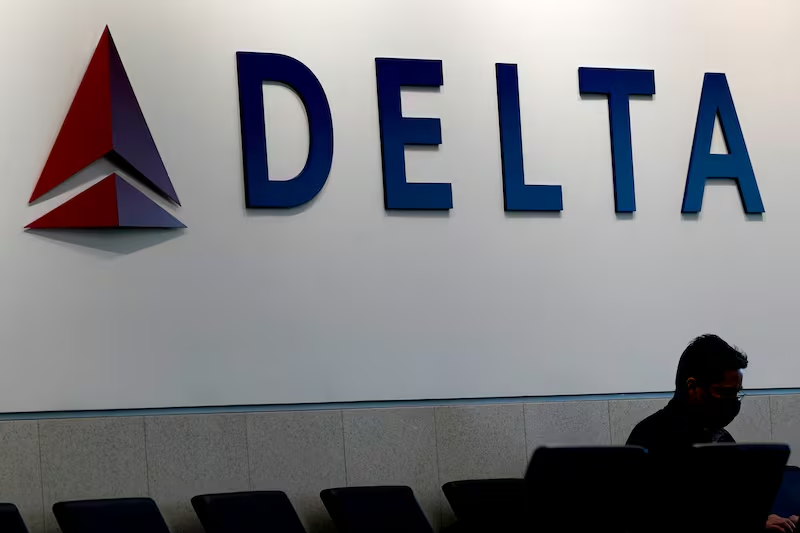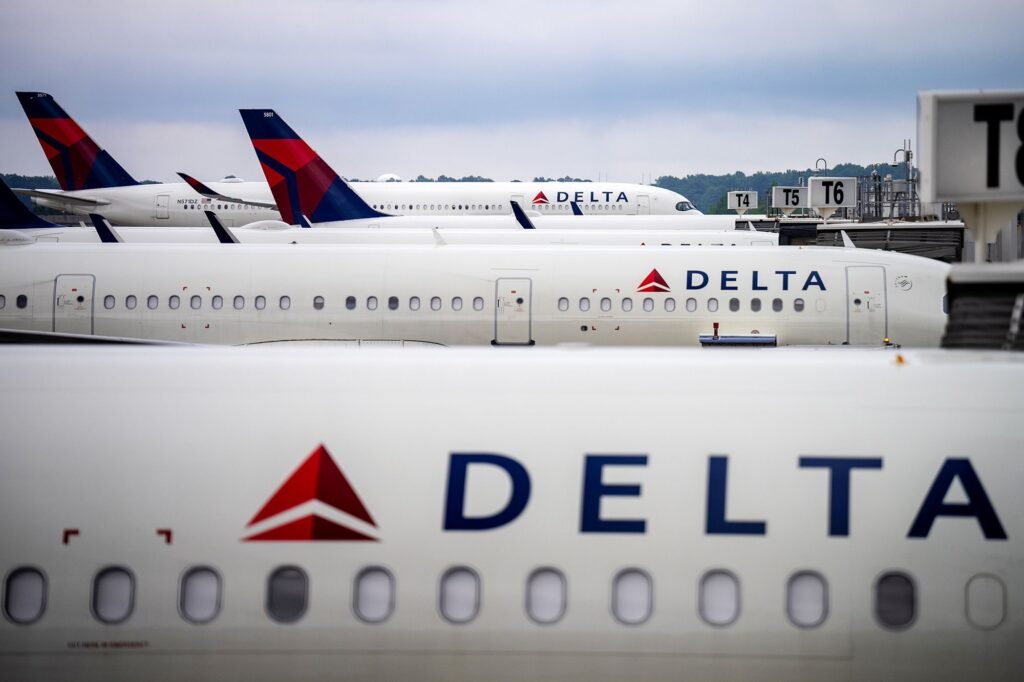A Warning from the Skies
Delta Air Lines, one of America’s biggest airlines, has joined a growing number of companies voicing concern over the Trump trade war impact on the economy. According to Delta, the ongoing trade conflict between the United States and China is already affecting global travel demand, raising business costs, and creating uncertainty in international markets.
During a recent earnings call, Delta CEO Ed Bastian said that the airline is watching the situation closely, noting signs of pressure from rising tariffs and falling international bookings. The warning comes as the trade war continues to impact industries far beyond manufacturing or agriculture—including aviation, tourism, and global business travel.
In this article, we’ll look at what Delta had to say, how the trade war is affecting the travel industry, and what this means for the broader economy.
Delta’s Concerns About the Trade War

Delta has made it clear that it sees the U.S.-China trade dispute as a potential risk to its operations. While the company remains financially strong, it has observed early warning signs of strain in the form of shifting travel patterns and unpredictable international markets.
Higher Costs from Tariffs
One of the main concerns is the rising cost of goods and services due to new tariffs. Airlines depend on global supply chains for aircraft parts, fuel, food, and even technology systems. When tariffs increase the cost of imported goods, companies like Delta must absorb those costs or pass them on to consumers.
Fuel, in particular, is a major expense for airlines. Any disruption in global supply or pricing—especially related to tariffs—can significantly affect profit margins.
Reduced Demand for International Travel
Delta has also reported a slowdown in demand for travel between the U.S. and China, one of its largest international markets. This is especially concerning for an airline that relies on strong global routes to remain competitive.
Tourists, students, and business travelers are rethinking trips between the two countries, especially as political tensions rise. The uncertainty surrounding visa policies, customs checks, and general travel convenience is leading many to cancel or delay international plans.
The Trade War’s Impact on the Travel Industry
While much of the focus of the trade war has been on manufacturing and farming, the airline and tourism sectors are quietly bearing their share of the burden.
Business Travel Feels the Hit
Corporate travel is one of the most profitable areas for airlines. When companies tighten their budgets or avoid international expansion due to uncertainty, airlines lose a valuable customer base. Delta has already observed that many business clients are pulling back on long-haul travel or changing meeting locations to avoid costly international logistics.
This ripple effect impacts not just airlines but also hotels, car rentals, restaurants, and local economies that depend on a steady flow of business visitors.
Long-Term Investment Uncertainty
Delta is also worried about the long-term effects of the trade war on future investment. Building new flight routes, upgrading technology, or forming partnerships with other global carriers all require confidence in stable international relations.
With the trade war continuing and no clear resolution in sight, companies like Delta may choose to delay or cancel investments that would otherwise boost growth, jobs, and innovation.
Broader Economic Worries

Delta’s warning is part of a larger trend. Many U.S. companies have spoken out about the unpredictable business environment created by the trade war. While some support the idea of being tougher on international trade rules, others say the approach is doing more harm than good.
Uncertainty Slows Growth
When companies are unsure of future costs, they tend to slow down hiring, hold off on expansions, and cut spending. This “wait and see” attitude is not good for economic growth. Delta’s concern is that if the trade war continues, overall demand in the U.S. economy could slow down—and that would be bad for all industries, including airlines.
Stock Market and Investor Anxiety
Every time there’s news of rising tariffs or failed trade talks, the stock market reacts. Airlines are especially sensitive to these changes because they operate with narrow profit margins. When investors see that companies like Delta are worried, it adds to overall market anxiety.
What It Means for Travelers
So what does this mean for everyday travelers? Delta’s warning might sound like corporate talk, but there are real effects for passengers.
- Higher ticket prices: If airline costs go up due to tariffs, passengers may end up paying more.
- Fewer international routes: Airlines may reduce flights to some countries if demand falls too much.
- Less spending on customer service: In times of uncertainty, companies often cut non-essential spending, which might affect in-flight meals, entertainment, or staffing.
Even if you don’t fly often, a weaker airline industry affects the entire travel experience—from airport services to vacation packages.
Delta Joins a Growing Chorus
Delta isn’t alone in voicing concern. Other major U.S. companies in sectors like tech, automotive, and retail have also criticized the trade war’s direction. Many have said that tariffs are making it harder to operate globally, leading to job cuts or slowing expansion.
These messages show that while the idea of stronger trade protection sounds good on paper, the real-world effects are much more complicated.
Hope for a Peaceful Resolution
Despite the challenges, many business leaders remain hopeful that the trade war can be resolved through diplomacy. Delta, like many others, would prefer a stable global environment where businesses can grow and customers can travel freely.
If negotiations between the U.S. and China can lead to reduced tariffs and clearer rules, industries across the board—including airlines—could breathe a sigh of relief.
Conclusion: Flying Into Uncertainty
Delta’s warning about the Trump trade war impact is more than just a business update—it’s a signal that even strong, well-run companies are feeling the pressure of global political decisions.
Airlines like Delta are the lifeblood of international business and travel. When they speak up about economic threats, it’s worth paying attention. Rising costs, lower demand, and reduced investment are all signs that the trade war’s effects are becoming more visible.
As the situation continues to unfold, travelers, businesses, and policymakers will need to keep their eyes on the horizon—because what happens next could shape the future of global trade and travel.
Also Read – Walmart’s Outlook Shaken by Tariff Uncertainty






